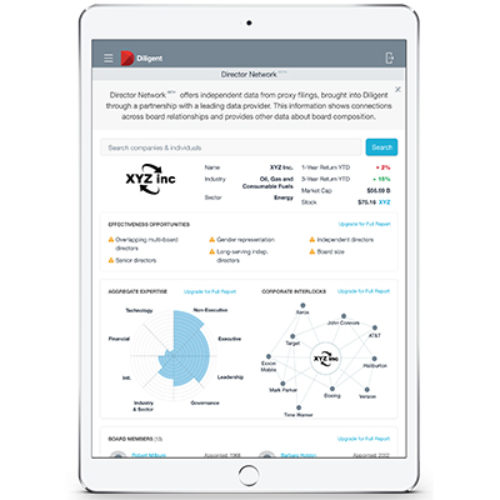As evidenced in recent letters by State Street and BlackRock and a rulemaking petition to the SEC, institutional investors have escalated ESG (environmental, social, and governance) on their list of priorities. What’s the current level of board understanding and oversight on ESG issues—and what steps can boards take to strengthen their efforts amid busy agendas and evolving guidance?
In this episode, Heather Curlee, counsel with Wilson Sonsini Goodrich & Rosati, talked with host TK Kerstetter about a panel she hosted, “The Elephant in the Room: Why Every Board Must Address Sustainability,” at Corporate Board Member’s 2019 Boardroom Summit featuring Catharine Ellingsen from Republic Services, Veena Ramani from Ceres, Cyrus Taraporevala from State Street, and Mark Tulay from Sustainability Risk Advisors.
Climate change and culture ascend on the agenda
Whether under the auspices of corporate social responsibility, socially responsible investing, or the current ESG nomenclature, ESG has been seen by many companies and boards as an investment fad, Curlee said. This is no longer the case.
According to Curlee, the institutional investor community perceives climate change and social issues—and how they’re managed through governance—as real risks. They’re looking at long-term risk mitigation and value, and want to see that companies are starting to respond. Are they getting the resources in place? Are they putting in the personnel to address these issues?
“I don’t think we’re quite to the level of disclosure yet but over the next year, I would expect that investors will be demanding that companies show some action be taken,” said Curlee.
Despite ESG issues predominating in Curlee’s panel and the rest of the summit, boards have yet to pay the same level of attention. When Curlee asked how many companies had climate change on the agenda, only 30 percent of the hands went up.
Of the respondents, 70 percent said that climate change is not on their agenda.
— Heather Curlee, Counsel, Wilson Sonsini Goodrich & Rosati
Expanding the board’s role in ESG
Despite the emergence of a few sustainability leaders, “A number of companies are just starting to become aware that addressing environmental, social, and governance risks is a necessary factor for their business going forward,” Curlee said.
Boards already have full agendas, and it can be difficult to carve out the time for an issue as complex as ESG. Nevertheless, ESG is a “large and material” issue that’s moving very quickly. Whether looking at it from a material risk disclosure perspective or looking at ESG for strategic business opportunities, it’s an action item that must be addressed.
Curlee and Kerstetter agreed that the first task in dealing with ESG is to talk about it. This includes letting investors know that the company is aware of ESG risks and taking steps to disclose and mitigate them as necessary.
To these ends, Curlee suggested that boards leverage company experts and available guidance. She cited recent guidelines by the Sustainability Accounting Standards Board (SASB). Industry by industry, these guidelines list risks related to climate change, social issues, and governance. “This is a good starting point for companies, especially those just getting their feet on the ground,” she said.
It’s first understanding the risks companies face. Our panelists were pretty much in agreement that the SASB guidelines are a good starting point.
— Heather Curlee, Counsel, Wilson Sonsini Goodrich & Rosati
Whether boards delegate ESG to management or board committees, or deal with these issues at the full board level, “boards are going to have to address climate change and determine: Does their company face a risk from climate change? And I think until now that has been a hard and somewhat controversial question to ask,” Curlee said.
Fortunately for boards, Kerstetter said, investors “aren’t expecting magic overnight. They’re having the same challenges trying to define materiality and reporting.”
That being said, he added, “They made it pretty clear that [ESG] was not an issue to ignore.”
Is your board looking at the right data?
Effective oversight of ESG issues will depend on whether today’s boards have the right information at their fingertips. How does your board composition compare to your peers? What conflicts of interest might your investors have uncovered.





